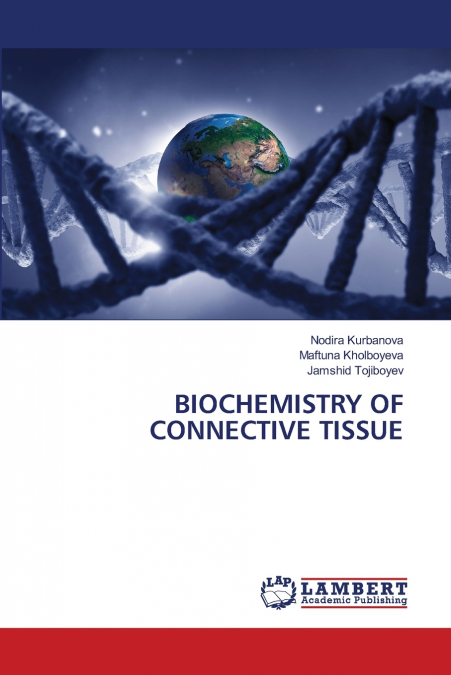
Jamshid Tojiboyev / Maftuna Kholboyeva / Nodira Kurbanova
Connective tissue plays a crucial role in providing structural integrity, support, and biochemical functions in the human body. It consists of specialized cells and an extracellular matrix (ECM), which includes collagen, elastin, proteoglycans, glycosaminoglycans (GAGs), and glycoproteins. Collagen is the most abundant structural protein, providing tensile strength. It undergoes hydroxylation and cross-linking to form stable fibers. Elastin ensures elasticity in tissues like skin, lungs, and blood vessels. Proteoglycans and GAGs contribute to hydration, resilience, and shock absorption, particularly in cartilage. Glycoproteins such as fibronectin and laminin mdiate cell adhesion and communication.